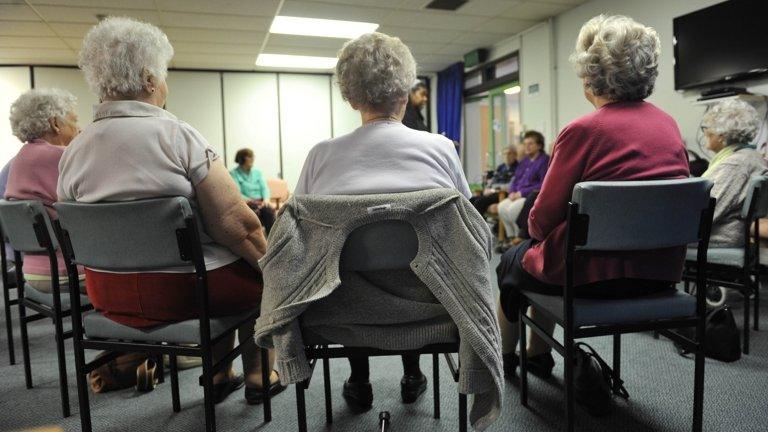Liverpool City Council launches private landlord licence
- Published

The council said the scheme was the largest in the country, covering up to 50,000 properties
A compulsory licence for landlords aimed at improving Liverpool's private rented housing has been introduced.
The new rules, which will cover up to 50,000 lets, require private landlords to hold a licence, which will cost upwards of £400, from 1 April.
Liverpool City Council said the scheme was the largest in the country and would help protect tenants.
The National Landlords Association (NLA) said the "heavy-handed" scheme could be "alienating" to landlords.
Applicants for the five-year licence will be checked to see if they are "a fit and proper person", a spokesman said.
The process will include investigating if they have a history of "convictions for dishonesty, violence or drugs or contraventions of housing laws", he said.
Landlords will also have to meet health and safety guidelines and be seen to be "keeping the exterior in a good state of repair and dealing with complaints about anti-social behaviour caused by tenants", he added.
Those without a licence could be fined up to £5,000 and see their properties taken over by the council until an alternative licensed landlord is found.
'Costly for everyone'
The licence costs £400 for one property, with an extra £350 payable for each subsequent let.
"Good landlords" who are already members of an accredited or co-regulation scheme approved by the council would only pay £200 for each property, the spokesman said.
He added that money generated from the scheme "will only be used for legitimate costs such as compliance checks".
Assistant Mayor Ann O'Byrne said "responsible landlords... have absolutely nothing to fear", but the council was "concerned about a number who rent properties that fail to meet satisfactory standards".
"This has a negative impact on the health and welfare of local communities and on a housing market that is already vulnerable in terms of vacant properties, low house prices and depressed rental values."
NLA's local authority policy officer Gavin Dick said selective licensing can be "an effective tool" but the "burden" of Liverpool's scheme "will be shouldered by reputable landlords who will feel compelled to comply with this heavy-handed regulation".
"We are concerned that it will do little to hinder the actions of criminals preying on the vulnerable, [and], without funding for enforcement, will leave them to continue to flourish away from the eyes of the law."
He said implementing licensing in specific problem areas was a better approach, which would get support from "the responsible landlord community, rather than completely alienating them".
He added the policy would "be costly for everyone [as] landlords who choose to not absorb the increased costs themselves will have to pass it on to tenants as higher rents".
- Published18 October 2014

- Published6 June 2014

- Published17 August 2012
